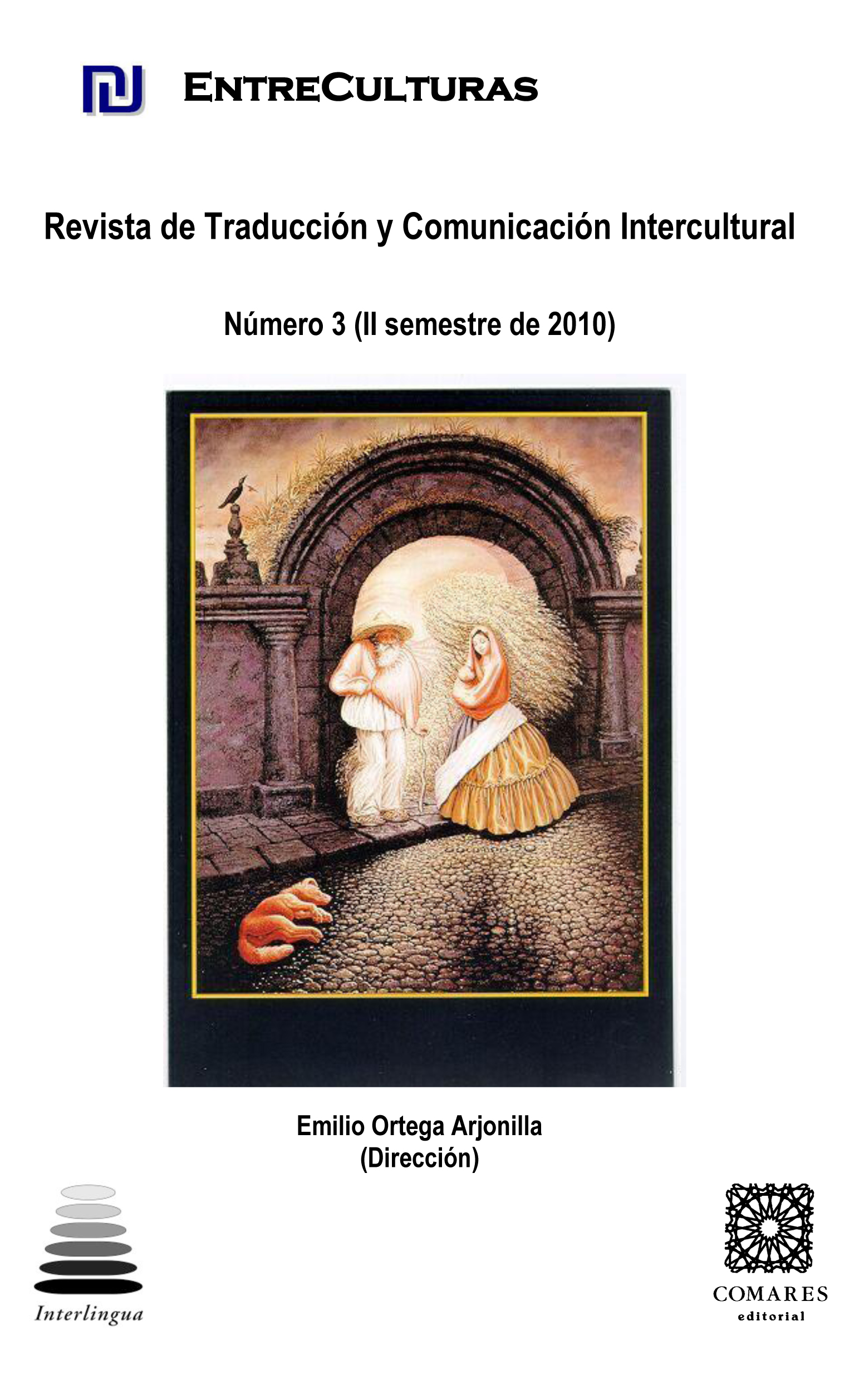LA CONVENIENCIA DE UNA CLASIFICACIÓN DE LOS DOCUMENTOS DEL ÁMBITO FINANCIERO PARA LA TRADUCCIÓN ESPECIALIZADA
DOI:
https://doi.org/10.24310/Entreculturasertci.vi3.11625Keywords:
financial register, textual typologyAbstract
Theory insists on dealing with it as a whole whereas daily practice presents it in a separate way. Economic and financial texts show enough distinctive features as to justify the need to treat them as two different registers: economic register and financial register. This conclusion being a proven fact, the article discusses the feasibility to develop a typology of text types within the financial discourse and its usefulness for the translator.
Downloads
Metrics
References
BERKENKOTTER, C. Y T. N. HUCKIN (1995): Genre Knowledge in Disciplinary Communication: Cognition/Culture/Power. Hillsdale, New Jersey, Lawrence Erlbaum Associates, Publishers.
BHATIA, V. K. (1993): Analysing Genre. Language Use in Professional Settings. Londres/Nueva York, Longman.
BORJA ALBÍ, A. (1999): «La traducción jurídica en España al filo del milenio: profesión e investigación». Perspectives, Studies in Translatology, 7:2, 154-166.
— (2004): «La investigación en traducción jurídica» en García Peinado, M. A. y Ortega Arjonilla, E. (dirs.): Panorama actual de la investigación en traducción e interpretación. Granada, Atrio.
— (2007): «Los géneros jurídicos» en Alcaraz Varó, E., Mateo Martínez, J. y Yus Ramos, F. (eds.): Las lenguas profesionales y académicas. Barcelona, Ariel.
GAMERO PÉREZ, S. (2001): «Un concepto fundamental: el género». En Gamero Pérez, S.: La traducción de textos técnicos. Barcelona, Ariel.
GREGROY, M. Y S. CARROLL (1978): Language and Situation: Language varieties in their Social Contexts. Londres, Routledge & Kegan Paul.
HATIM, B. E I. MASON (1990): Discourse and the Translator. Londres/Nueva York, Longman.
MONZÓ NEBOT, E. (2002a): La professió del taductor juridic i jurat: descripció sociològica del profesional i análisi discursiva del transgènere. Universitat Jaume I, Servicio de Publicaciones de la Universidad Jaume I.
— (2002b): «La traducción jurídica a través de los géneros de especialidad: el transgénero y la socialización del traductor en los procesos de enseñanza/aprendizaje». Discursos. Estudos de Traduçao 2, 21-36. Documento disponible en Internet. [www.gitrad.uji.es/common/articles/Monzo03_Discuros.pdf]
ORTEGA ARJONILLA, E. (1996): «Peculiaridades del lenguaje jurídico desde una perspectiva lingüística» en San Ginés Aguilar, P. y Ortega Arjonilla, E. (eds.): Introducción a la traducción jurídica y jurada (inglés-español). Granada, Comares.
SWALES, J. (1990): Genre Analyissi: English in Academic and Research Settings. Cambridge, Cambridge University Press.
TROSBORG, A. (1997): «Text Typology: Register, Genre and Text Type». En Trosborg, A.: Text Typology and Translation. Ámsterdam, John Benjamins.
WERLICH, E. (1976): A Text Grammar of English. Heidelberg, Quelle&Meyer.
Downloads
Published
How to Cite
Issue
Section
License
All contents published in Entre culturas. Revista de traducción y comunicación intercultural are protected under the Creative Commons Attribution-NonCommercial-ShareAlike 4.0 International (CC BY-NC-SA 4.0) license. All about this license is available in the following link: <http://creativecommons.org/licenses/by-nc-sa/4.0>
Users can copy, use, redistribute, share and exhibit publicly as long as:
- The original source and authorship of the material are cited (Journal, Publisher and URL of the work).
- It is not used for comercial purposes.
- The existence of the license and its especifications are mentioned.
There are two sets of authors’ rights: moral and property rights. Moral rights are perpetual prerogatives, unrenounceable, not-transferable, unalienable, imprescriptible and inembargable. According to authors’ rights legislation, Entreculturas. Revista de traducción y comunicación intercultural recognizes and respects authors moral rights, as well as the ownership of property rights, which will be transferred to University of Malaga in open access. The property rights are referred to the benefits that are gained by the use or the dissemination of works. Entreculturas. Revista de traducción y comunicación intercultural is published in an open access form and it is exclusively licenced by any means for doing or authorising distribution, dissemination, reproduction, , adaptation, translation or arrangement of works.
Authors are responsable for obtaining the necessary permission to use copyrighted images.





7.png)
